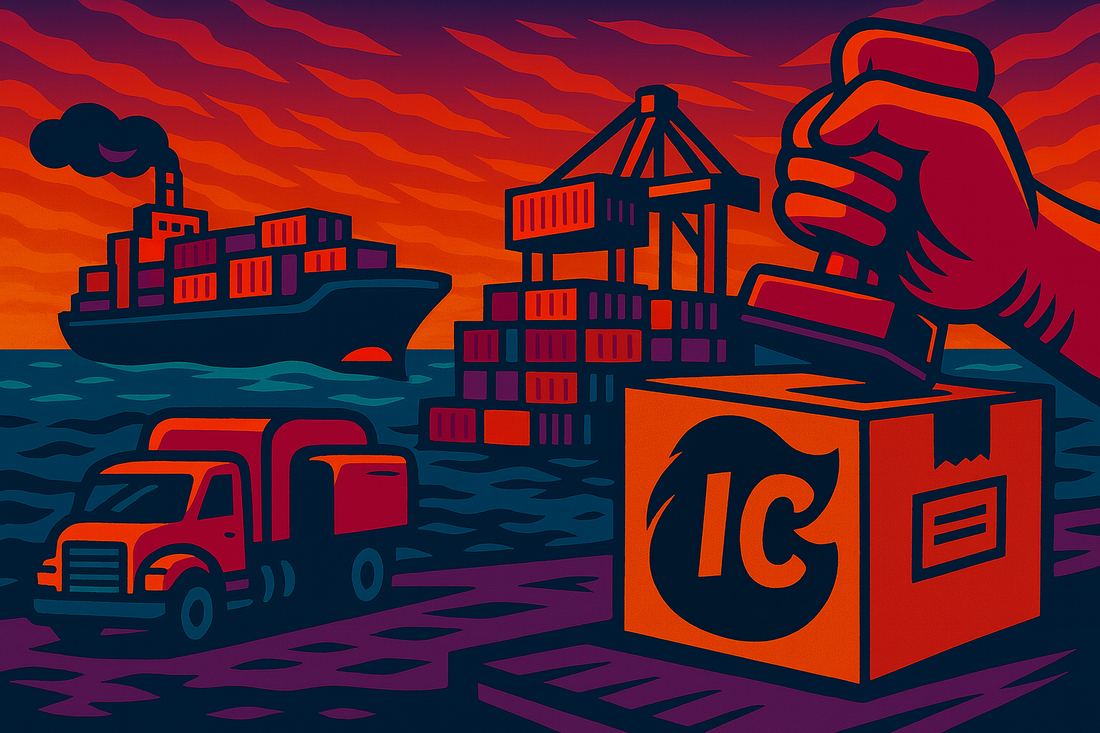
Signed, Sealed, Emitted: The Carbon Cost of Convenience
🚚 Ship Happens: Why Our Deliveries Are Heating Up the Planet
We live in a golden age of convenience. One click, and a box shows up on your doorstep. But what we don’t see is the environmental toll that journey takes. From warehouse floors to cargo ships crossing oceans, the shipping process is one of the most carbon-intensive stages of modern commerce.
According to the International Maritime Organization, the shipping industry produces over one billion metric tons of CO₂ annually—accounting for nearly 3% of global greenhouse gas emissions. That’s more than the entire country of Germany. As e-commerce continues to skyrocket, experts warn that emissions from shipping could increase by up to 50% by 2050 if left unchecked.
Planes burn jet fuel. Trucks run on diesel. Cargo ships are powered by heavy bunker fuel—the dirtiest fossil fuel on the market. We’re not just talking about tailpipe emissions; we’re talking about soot in Arctic ice, acidifying oceans, and communities living near ports breathing toxic air.
As consumers, we rarely think about the carbon trail our convenience leaves behind. But we should.
⚡ Powered by Progress: Sustainable Shipping is Already Here
Let’s be clear—this isn’t about canceling shipping or shaming shoppers. It’s about demanding and supporting better alternatives. And thankfully, the shipping world is beginning to evolve.
Amazon, one of the largest delivery networks on the planet, is deploying over 100,000 electric Rivian vans across the U.S. and Europe. This bold move is projected to avoid millions of metric tons of CO₂ emissions over the coming decade. Meanwhile, shipping giant Maersk has invested billions in methanol-powered container ships, which significantly reduce lifecycle carbon emissions compared to traditional fuels. Other innovators are looking to the skies and streets—electric cargo planes, solar-powered warehouses, and even bike courier systems are transforming last-mile delivery into something cleaner and smarter.
According to environmental economist Dr. Tania Singh,
“The shift to cleaner logistics isn't a luxury—it's an essential part of meeting our climate goals. The sooner we support companies making that shift, the faster the planet recovers.”
In short: sustainability isn’t just possible in shipping—it’s already happening. And the more we support it, the faster it becomes the norm.
🖋️ Paying the Price with Algae: Immoral Coral’s Ocean-Smart Stamp
At Immoral Coral, we’re not waiting around for the future of shipping to arrive—we’re helping build it now. That starts with our packaging. Every box we ship is hand-stamped using Oceanium algae-based ink, a negative-carbon productthat literally pulls more carbon out of the atmosphere than it emits.
While most packaging adds to the carbon problem, ours subtracts. The algae we use isn’t just sustainable—it’s regenerative. It grows fast, absorbs carbon, and requires no deforestation or toxic chemicals. That means that every time you receive an Immoral Coral order, you’re not just getting eco-conscious apparel. You’re receiving a real, measurable reduction in global carbon emissions—visible in every algae-stamped box.
Think of it as a carbon refund slip—a tangible receipt that your purchase didn’t just do no harm, it helped undo harm already done.
We're not here for greenwashing. We're here for green doing.
✊ Your Box, Your Protest
You deserve more than empty promises and padded eco-buzzwords. That’s why we give you something real. Something physical. Something personal.
When your Immoral Coral package arrives, stamped in algae ink, it means your voice joined the rebellion. You wore your protest. You helped cancel out emissions in a world that’s still addicted to convenience.
It’s easy to feel powerless in the face of climate chaos—but your wardrobe doesn’t have to be part of the problem. With every shipment, we’re doing what the ocean needs most: showing up, cleaning up, and speaking up.
“We're not just offsetting our footprint — we're making it fashionable to walk lighter.”
— Immoral Coral
